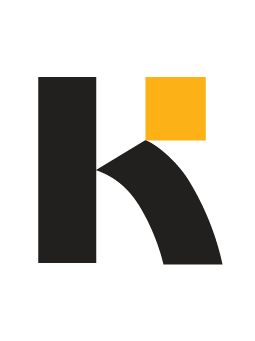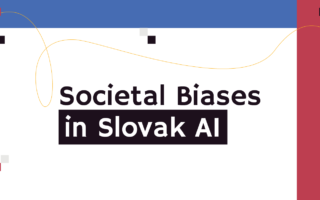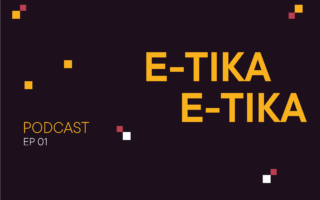What's
KInIT has partnered with top language technology experts to tackle disinformation
Bratislava, 21 February 2023 – The Kempelen Institute of Intelligent Technologies (KInIT) has succeeded in the Twinning scheme of the Horizon Europe grant programme, the European Union’s key programme for funding research and innovation with a budget of €95.5 billion. KInIT is one of the three most successful Slovak applicants in this programme for 2022 and received the best funding per researcher. Last year, KInIT managed to receive as many as five grants, totalling almost two million euros. The main goal of the latest three-year international DisAI project is to improve the use of language technologies and trustworthy artificial intelligence (AI) in the fight against disinformation.
Over the next three years, KInIT will hold a number of training sessions, webinars, workshops, as well as a summer school for students, researchers and research management to help increase the competences of the institute’s staff and, to some extent, the professional public as well. The training activities will also include a so-called shared task. A shared task functions in the scientific world as a mechanism for multi-team work on an open scientific problem with submitted data that can be used by researchers from all over the world.
“We will also have a research project – our experts will work in teams with international partners, they will write joint articles and present their results at the end. We will be working with top researchers in language technology and countering disinformation, from whom we want to learn a lot. For KInIT it is also a chance to raise our profile at the European level, to gain a lot of new experience that we can implement in the Slovak context, as well as to establish important partnerships for our further development,” explains the project’s Principal Investigator Marián Šimko.
Prestigious research institutions will also participate
KInIT considers the fight against disinformation as one of the most important societal challenges. It is no secret that Slovakia is one of the less developed countries in the European Union in this area and systematic support for it is practically non-existent in our country. Moreover, our research and innovation ecosystem suffers from a lack of cooperation between industry and academia.
“That is why, as an institute involved in intelligent technology research, we were looking for partners who could help us improve our scientific maturity in the fight against misinformation. We approached the most prestigious institutions in the field of language technology and trustworthy AI research in Europe and together we applied for the Horizon Europe grant programme,” says Marián Šimko. KInIT will collaborate on the project with leading research institutions DFKI from Germany, CERTH from Greece and the University of Copenhagen, whose leading experts will mentor the Slovak researchers.
The analysis and processing of data from the web, with a focus on disinformation or other forms of harmful content, together with natural language processing and understanding, are among the main disciplines of KInIT, which is the first independent institute of its kind in Slovakia.
Project partners
German Research Center for Artificial Intelligence (DFKI) is the world’s largest independent AI research institute in various areas of human-centered AI, including language technologies and multilingualism issues.
Centre for research & technology HELLAS (CERTH) is a leading Greek research centre with extensive expertise in countering misinformation and multimodal processing.
University of Copenhagen (UCPH) is an internationally renowned university and the 7th best university in Europe and 30th worldwide according to the prestigious ARWU ranking (Shanghai). It has one of the strongest natural language processing departments in Europe and expertise in trustworthy AI.
We want to increase the security of the digital society
This project works with natural language processing methods, a subfield of artificial intelligence that is used in detecting misinformation, verifying facts and understanding multiple languages. Thanks to the grant support, the project will contribute to refining these research activities in Slovakia. “KInIT’s long-term goal is to help protect the digital society. Together with our partners, we want to develop new methods to support the fight against disinformation and significantly advance research in this area,” explains Marián Šimko.
The scientific part of the project focuses on investigating a specific problem in this area, so-called claim matching. “We are aware that complete automation of the fight against disinformation is difficult to achieve, but we want to make the fact-checking process more efficient and faster by various methods,” concludes the project’s Principal Investigator and Deputy Director of KInIT, Marián Šimko. Emphasis will also be placed on the visibility and impact of the project so that its results will be beneficial for as many stakeholders in the research and innovation ecosystem in Slovakia and Europe as possible. At the same time, the project will enable KInIT to strengthen its research management and administration skills.
About KInIT
KInIT is an independent, non-profit institute dedicated to intelligent technology research. It brings together and nurtures experts in artificial intelligence and several other areas of computer science. The institute’s goal is to bring excellent science to industry and to connect academia with the world of business. KInIT focuses on combating misinformation and is involved in international initiatives in the field of information disorders. Its research areas include multilingual language technologies, multimodal natural language processing and trustworthy artificial intelligence.


